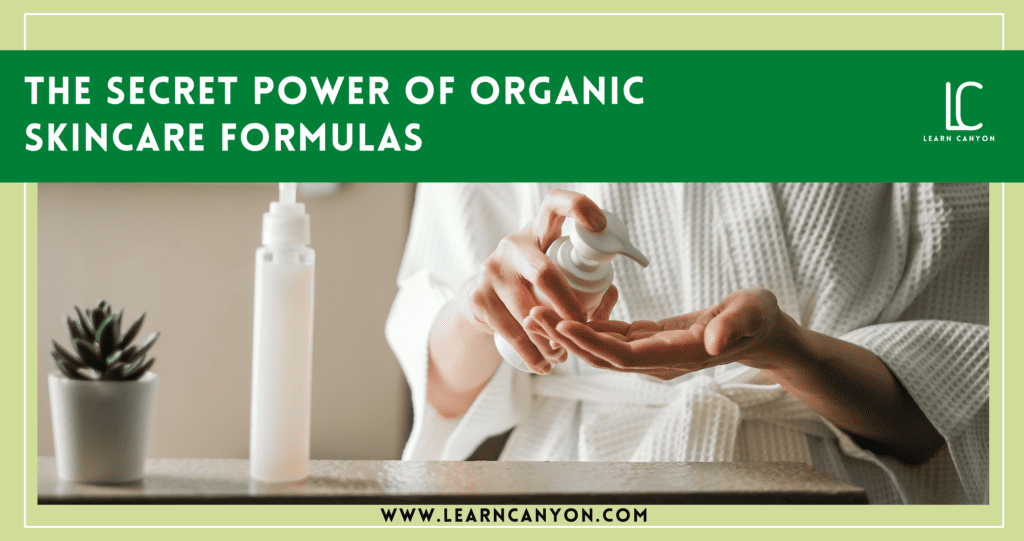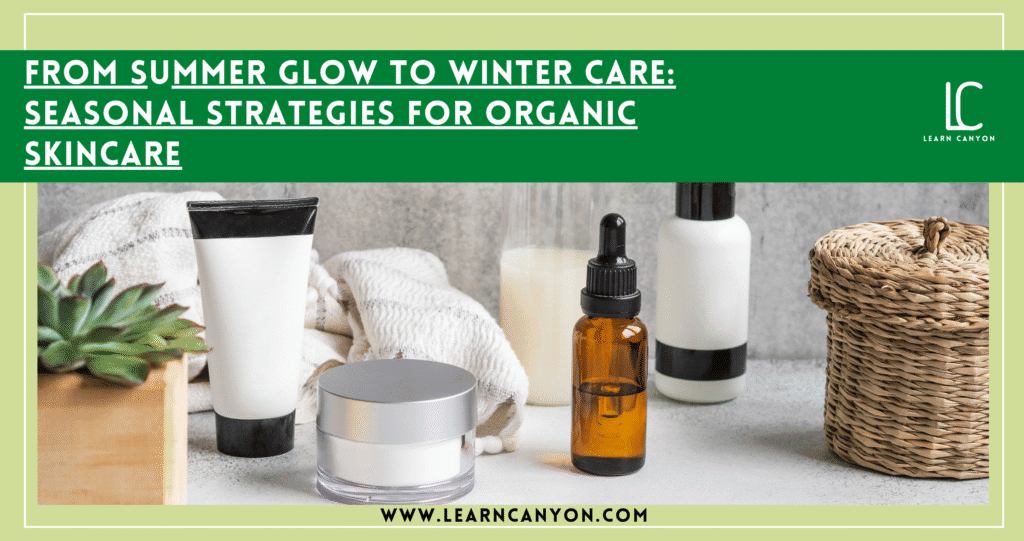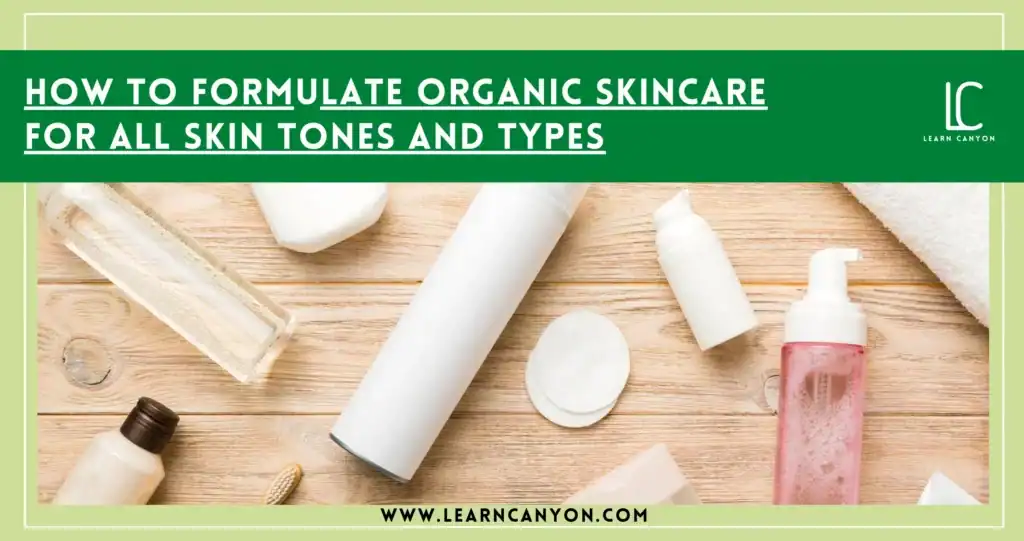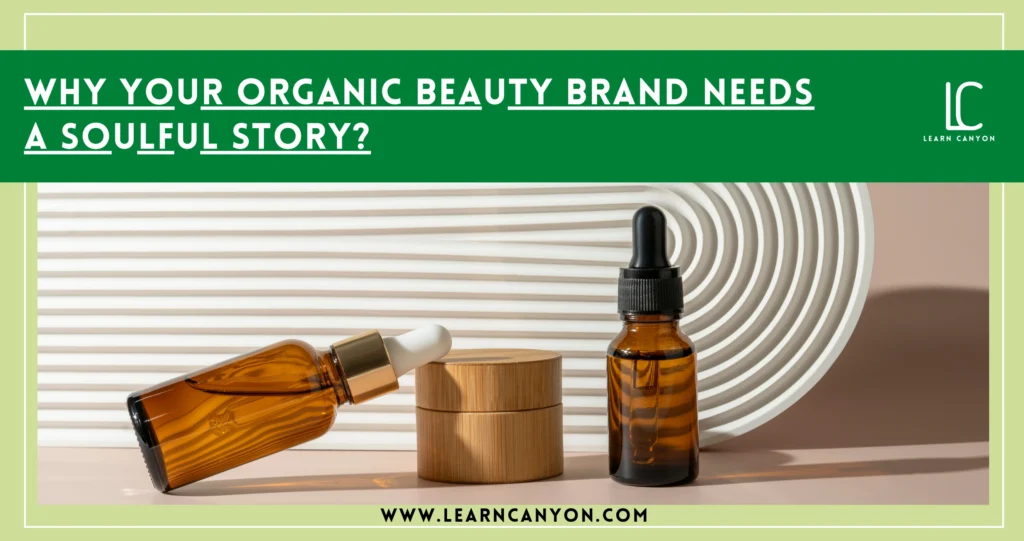Hello, fellow formulators and enthusiasts of skincare! Seeing you here, prepared to go deeply into the fascinating world of organic skincare formulas, makes me very happy. I’m Priya, and I’ve spent more than ten years now, formulating skin care products professionally.
Like many of you, I began by being curious, enthusiastic, and a little confused by the confusing set of “natural” and “organic” labels that clog the skincare shelves.
In order to navigate the confusion and explore the rich, rewarding world of organic skincare formulations, let’s do it together today.
My understanding of skincare has changed as a result of this journey, and I can attest that it is eye-opening. Helping people feel confident and at ease in their own skin has always been my passion, and implementing organic formulations has changed everything in this journey.
You see, “natural” was popular when I first entered the skincare industry. By using ingredients that were naturally derived, we believed we were making a difference, and to be fair, it was a good start.
However, when I did, it was like discovering a secret passageway in a space you had assumed you knew like the back of your hand. I then discovered the world of organic skincare.
You might be asking why there is a difference between natural and organic matter at this point. And that’s exactly where we’re going to start.
This is the start of a journey that will equip you with the knowledge you need to formulate skincare products that are kind to both our skin and the environment while also looking and feeling beautiful.
Put your seatbelts on, people. We’re about to set out on an adventure through the exciting, transformative world of organic skincare formulations.
Whether you’re just starting out or an experienced formulator, I can assure you that this journey will give you a new outlook and a wealth of information. Together, let’s discover the organic skincare industry’s hidden power!
Understanding the ‘Natural’ and ‘Organic’ Skincare Concept
Let’s start by understanding the terms “natural” and “organic,” which are currently used a lot. I recall thinking they were interchangeable when I first started out. Boy, was I mistaken!
“Natural” Skincare When we refer to “natural” skincare, we mean items created using natural ingredients rather than synthetic ones. Great, isn’t that right? It’s a little more complicated than that, though.
The word “natural” is not strictly regulated in the beauty industry. This implies that a product can make a claim to be natural even if it only contains a tiny amount of natural ingredients in addition to a mixture of artificial ones.
How I discovered, you might think?
The day I discovered this is one I’ll never forget. I was incredibly proud of the “natural” moisturizer I had created.
My bubble, however, burst when a mentor of mine called attention to the artificial preservatives I had used. That was my first nudge towards the world of organic skincare because I realized I still had a lot to learn.
“Organic” Skincare ‘Organic’ is a completely different game now. Organic skincare products aren’t just made from natural ingredients; they’re also grown without the use of pesticides, synthetic fertilizers, or genetically modified organisms.
They must adhere to strict requirements because they are frequently certified by agencies like the USDA.
I can still clearly recall the first time I made a truly organic product. Even though it was just a straightforward rose water toner, the roses used came from an organic farm, and the entire production process was thoroughly watched to prevent any contamination with non-organic materials.
It was such a significant accomplishment! I could feel good about everything that went into that tiny bottle, and the scent and color were both more powerful.
‘Natural’ and ‘organic’ are not the same thing, as you now know. No way near it! As a formulator, it is imperative to comprehend this difference. It’s similar to being a chef and understanding the difference between fresh, organic, and canned tomatoes.
Both have their place, but only one unquestionably provides a more rewarding, healthy, and long-lasting experience.
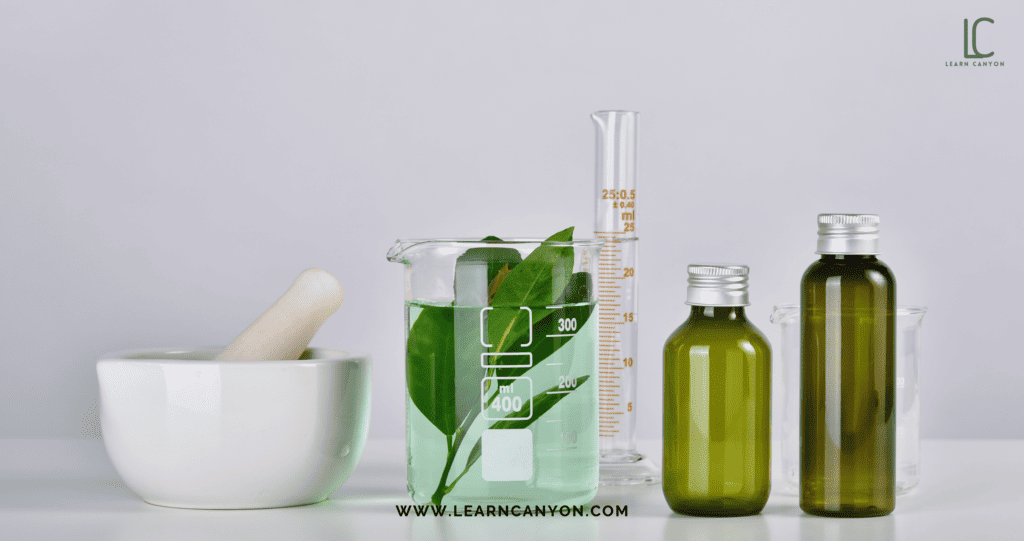
The Science Behind Organic Skincare Formulas
After learning the difference between natural and organic products, I was eager to get into the specifics of organic skincare formulation. I won’t lie; despite being happy, I was also slightly anxious. It seemed like I was entering entirely new territory, but the effort was well worth it, I assure you.
Organic Skincare Formulation: Formulating organic skincare is similar to creating art; it involves selecting each ingredient with care, understanding its function, and ensuring it is sourced and processed to preserve its organic integrity.
It is also important to understand the interactions between various ingredients, their stability, and their shelf life.
I recall my first attempt at making an entirely organic face cream. Finding organic substitutes for some of the synthetic emulsifiers and preservatives I was familiar with was challenging.
But it was like piecing together a complicated puzzle when I finally discovered a combination of organic oils, butters, and natural preservatives that worked. And the outcome? A cream that was rich in the goodness of truly organic ingredients, smelled divine, and felt luxurious.
Ingredients in Organic Formulations: Essential oils, botanical extracts, plant oils, and natural preservatives are all examples of organic skincare ingredients. Each component contributes different advantages to the dish.
Organic jojoba oil, for instance, is great for balancing sebum production in the skin, while organic chamomile extract has calming properties.
One of my favorite stories from my life remembering about ingredient is about having to develop a formulation for sensitive skin. Because of the soothing and hydrating qualities of organic aloe vera gel, I chose to use it instead of water. However, finding genuine organic aloe vera gel proved to be somewhat difficult.
I eventually discovered a small organic farm that produced it after doing a lot of research. It had a remarkable impact on the final product. My clients praised its calming effects, and I became aware of the potency of organic ingredients.
The goodness that nature intended is packed into organic ingredients, which are free of synthetic pesticides and fertilisers and frequently more potent than their non-organic counterparts. They are not only better for our skin, but also for the planet and the farmers who grow them.
We’ll go into the differences between organic and natural skincare in the following section, along with my justifications for why I think organic is the way to go. But for now, pause to admire the strength and beauty of ingredients used in truly organic skincare products. They truly are tiny magical drops.
Organic vs. Natural: A Comparative Study
You may be thinking, “Okay, Priya, I get it at this point. Natural and organic are two different things. But is it really that much better? That’s an important point, and I had it on my mind a lot when I first began learning about organic formulations. So, let’s look a little closer and compare these two.
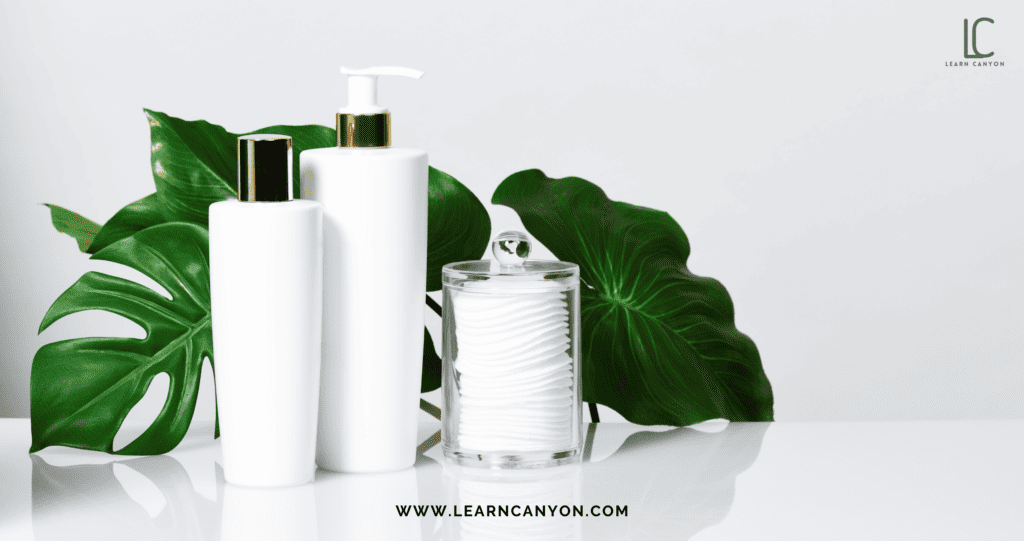
Formulation:
Organic ingredients need a little more thought and consideration when creating skin care products. They might be less resistant and more prone to changes in pH and temperature.
But let’s be honest, isn’t that true of everything that is truly natural and free of artificial chemicals?
Do you recall your first experience with organic, fresh strawberries?
Even though they didn’t last as long, didn’t they taste so much better than the frozen ones?
The same is true of organic skincare.
I remember when I had trouble stabilizing a formulation for an organic serum. I became frustrated because it kept separating.
But I chose to experiment with various organic oils and natural emulsifiers rather than return to synthetic ones. After much trial and error, I finally found the ideal mixture, and the satisfaction of getting past the challenge was beyond words.
Effectiveness:
Many people are concerned that natural skincare products won’t be as effective as their synthetic equivalents. However, in my experience, the opposite is frequently the case. Organic skincare products can be very potent and good for the skin when made properly.
The secret lies in understanding the special qualities of each ingredient and how they can combine to support and nourish the skin.
Consider the case of a client of mine who struggled with constant acne. She had unsuccessfully tried a number of ‘natural’ and artificial products. She was sceptic when I suggested switching to a straightforward, organic skincare regimen, but she was in need. In a matter of months, her skin had significantly improved.
She couldn’t believe how much of a difference a few organic ingredients could make now that’s the power of organic skincare.
Safety:
Safety is one of the main benefits of using organic skincare. Organic ingredients are less likely to result in skin irritations or adverse reactions because they are grown without synthetic pesticides and fertilisers. Patch testing is of course always important, but overall, the risk is much lower.
A ‘natural’ skincare product once caused a friend of mine to experience a severe allergic reaction. She was taken aback because she had assumed that natural meant secure. However, when we read the ingredient list, we discovered that a synthetic fragrance was present. She finally realised she needed to switch to organic skincare after that.
Just because something is advertised as “natural” doesn’t mean it’s free from artificial ingredients. And in this situation, organic really excels. Pure, unadulterated nature in a bottle is what you get when you purchase organic products.
Therefore, in my opinion, organic is superior to natural, and I must say that learning this has been nothing short of enlightening.
Transitioning from Natural to Organic Formulation
After hearing so much about organic skincare’s benefits, you might wonder, “How do I make the switch?” The switch from natural to organic formulation is A journey with its own set of rewards and challenges. Let’s then explore this topic a little further.
Challenges in Transition:
It takes more than just switching one ingredient to another to transition to organic formulation. It involves altering the way you view sustainability, sourcing, and skincare. At first, it might seem too much to handle, but trust me—it’s worthwhile.
I had a difficult time locating reliable suppliers of organic ingredients. I can still picture spending hours on the phone, speaking with various suppliers, touring farms, and even taking a few chemistry classes to better understand how various ingredients interacted. Although there was a steep learning curve, I became a better, more knowledgeable formulator as a result.
Strategies for Transition:
I recommend starting small to anyone considering a transition. Try to formulate one product organically, such as a straightforward facial oil or body butter. Learn about the advantages and disadvantages of each ingredient, and don’t be afraid to try different combinations.
I made the decision to start by making an organic lip balm. Although the formula was straightforward, it was helpful to me in understanding the complexities of using organic ingredients.
Many of my mistakes involved adding too much or not enough beeswax, which resulted in the balm being either too hard or too oily. But with each batch, I discovered something new, and before I knew it, I had a lip balm that was 100 percent organic and also effective.
Costs and Benefits:
Going organic can be more expensive in terms of both time and money. The cost of organic ingredients may be higher, and the formulation process may take longer. However, the advantages greatly outweigh the drawbacks.
I was anxious as I sold my first batch of organic lip balms. They were more expensive than the majority of lip balms on the market, and I wasn’t sure if customers would be willing to pay more.
But to my surprise, they were gone in just a week! People cherished the notion of using a product that was efficient and gentle on the environment and their skin. I realised I was heading in the right direction at that point.
Making the switch from natural to organic formulation involves more than just producing better skincare products. It involves committing to the wellbeing of ourselves, our clients, and the environment.
And I can assure you that there is no better feeling than knowing you are having a change.
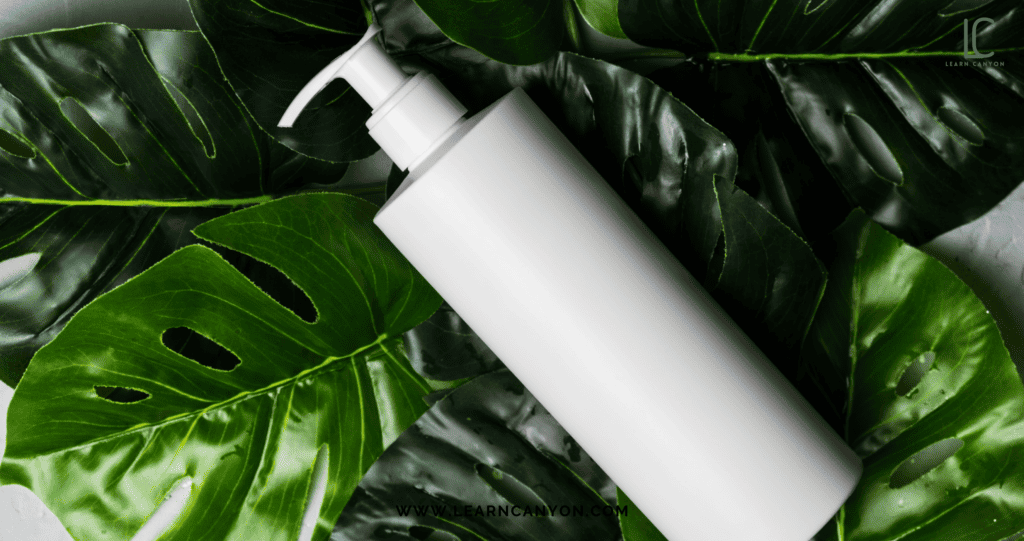
Case Study: Successful Transition from Natural to Organic Skincare Formulation
Let’s now discuss an actual case study of a formulation changeover from natural to organic skincare. This story is particularly dear to my heart because it involves Shreya, a fellow formulator and a dear friend.
Shreya ran an affordable but flourishing line of organic skincare products. She took pride in using premium, naturally sourced ingredients. She was intrigued though after hearing about the potential advantages of organic skincare. Like many of us, she was initially intimidated by the idea of switching her entire product line to organic. She nevertheless made the decision to try it.
The Challenge:
Shreya decided to start with her best-selling item, a hydrating facial serum. A mixture of plant oils and botanical extracts made up the natural version. Her task was to find organic substitutes for these ingredients that would produce similar if not better, results.
The Process:
Shreya started by exploring potential suppliers of organic ingredients, requesting samples, and conducting small-batch testing. To extend the shelf life of her product, she also had to learn about natural preservatives. After months of trial and error, she eventually created an organic serum that she believed to be even better than her original formula.
One of her most significant adjustments was substituting organic rose hydrosol for water in her formula. This not only gave her serum a lovely scent, but it also added hydrating and soothing qualities.
The Outcome:
Shreya was a little nervous when she introduced her new organic serum because she wasn’t sure how her devoted followers would respond. The response was overwhelmingly positive, much to her joy. Customers praised the new formula, saying it was more opulent and powerful than the old one. Even better, Shreya began bringing in new clients who were looking specifically for organic skincare products.
Lessons Learned:
Shreya’s journey served as proof of the effectiveness of organic skincare. She demonstrated that, despite the fact that change might demand more time, effort, and investment up front, the rewards can be substantial. She enhanced her product, expanded her clientele, and reaffirmed her company’s dedication to sustainability.
We can all draw inspiration from Shreya’s story. It demonstrates that switching from natural to organic skincare formulation is not only doable but also incredibly rewarding with commitment, patience, and a commitment to learning.
The Future of Skincare: Embracing Organic Formulation
I often wonder, “What’s next?” after starting this journey from natural to organic skincare formulation. I firmly believe that organic skincare is the future after seeing this approach’s enormous advantages and potential.
Growing Consumer Awareness:
Consumers are becoming conscious of the products they apply to their skin more than ever. People are reading labels, looking up ingredients, and expecting brands to be transparent. This shift towards conscious consumerism is driving the demand for organic skincare products.
One of my most fulfilling tasks as a formulator was leading a workshop on reading skincare labels. The attendees were shocked to discover just how many artificial ingredients were concealed by “natural” labels. It was an impactful moment that emphasised the value of education in the transition to organic skincare.
Sustainability:
Creating safer, more potent products is just one benefit of adopting organic skincare. Sustainability also plays a role. Organic farming methods are kinder to the environment by fostering biodiversity and lowering pollution. Formulators can help create a more sustainable future by using organic ingredients.
I can still remember going to a lavender farm that practised organic farming, where I saw firsthand how it supports a diverse ecosystem. It starkly contrasted traditional farming methods, from the bees buzzing around the lavender bushes to the rich, fertile soil. My devotion to organic skincare and its contribution to the cause of sustainability was solidified by that experience.
Innovation:
Innovation is being encouraged by the popularity of organic skincare. There are many opportunities for creativity and innovation in the formulation of organic skincare products, from finding novel organic ingredients to creating natural preservation techniques.
A fellow formulator recently shared an innovative method for extracting organic plant oils. Although the process took more time, the oils’ potency was preserved better than I had ever seen. It served as an exciting reminder of how much there is still to learn about the organic skincare industry.
Conclusion:
Join the Organic Skincare Revolution Become a formulator today
As we come to a close, I hope that this in-depth look at organic skincare formulation has helped you see its potential. Making the switch from natural to organic skincare is a commitment to a healthier, more sustainable future, not just a change in formulation.
I can’t help but be in awe as I reflect on my own journey. From natural to organic wasn’t always an easy transition. I occasionally felt lost and overpowered by the difficulties of organic formulation. But every obstacle brought new knowledge, fresh perspectives, and chances to advance.
The first time a customer wrote to me and expressed how much she loved my organic face cream is one of my most treasured memories. She had trouble finding a product that didn’t irritate her skin because of its sensitivity. She claimed that after applying my cream, her skin felt more soothed and nourished than it had in years. The one positive comment made all the effort worthwhile.
The market for organic skincare is vast, fascinating, and loaded with opportunity. But keep in mind that transitioning doesn’t have to occur immediately. Start small, maintain your curiosity, and enjoy the process of learning.
As formulators, we have the ability to alter not only the narrative surrounding our products but also that of skincare. We can encourage sustainable living, openness, and healthier choices.
Are you prepared to embrace the organic skincare revolution now?
Are you prepared to develop goods that hydrate skin, protect the environment, and uphold the strictest requirements for integrity and quality? If the answer is yes, then fasten your seatbelt because the journey ahead will be thrilling.
Let’s adopt organic skincare and improve the world one product at a time!




